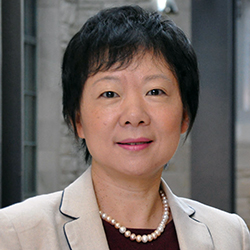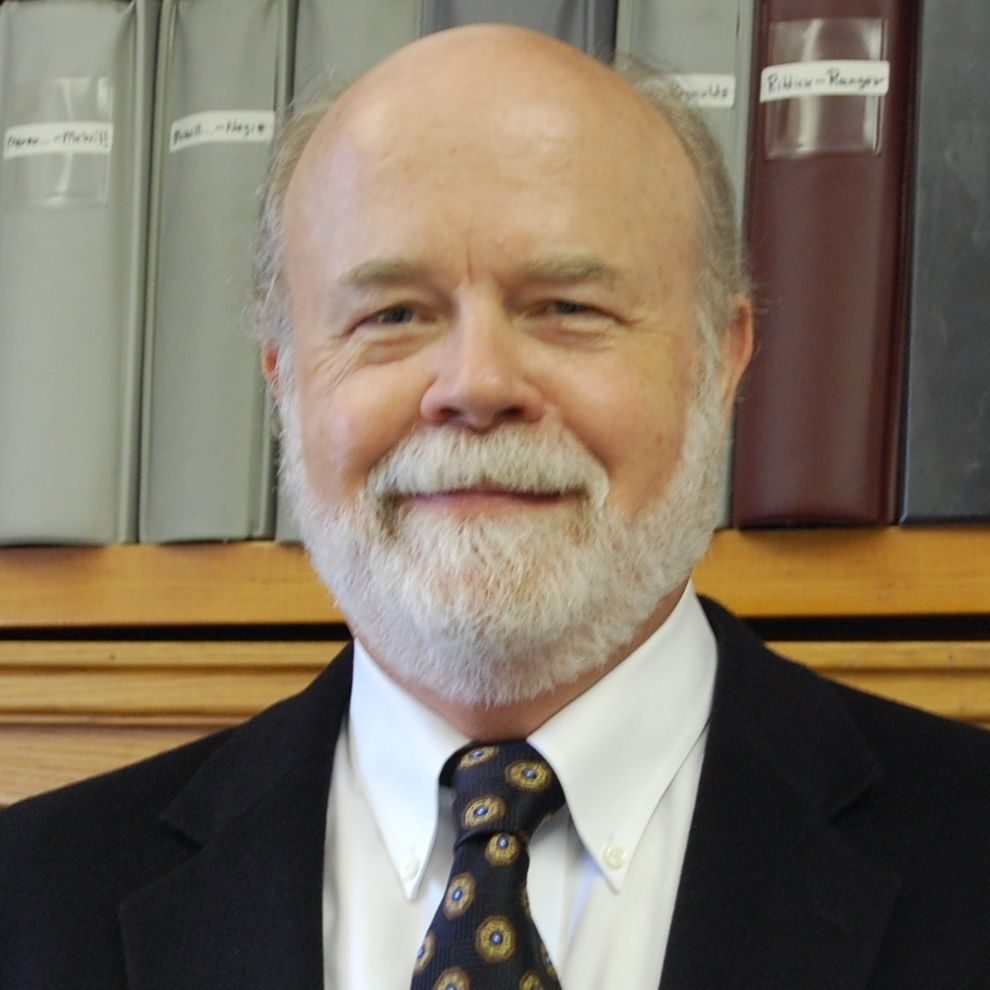Speakers - Workshop

Wilson-Cook Professor in Engineering Design
Department of Mechanical Engineering
Northwestern University
Abstract
Engineering design often involves qualitative and quantitative design variables, which requires systematic methods for the exploration of these mixed-variable design spaces. Existing machine learning (ML) models that can handle mixed variables as inputs require a large amount of data but do not provide uncertainty quantification that is crucial for sequential (adaptive) design of experiments. We have developed a novel Latent Variable Gaussian Process (LVGP) based ML approach that involves a latent variable (LV) representation of qualitative inputs, and automatically discovers a categorical-to-numerical nonlinear map that transforms the underlying high dimensional physical attributes into the LV space. The nonlinear mapping also provides an inherent ordering and structure for the levels of the qualitative factor(s), which leads to substantial insight and interpretable ML. In addition, LVGP provides uncertainty quantification of prediction which is critical for adaptive sampling to sequentially choose samples based on current observations and the method also offers easy integration with Bayesian optimization (BO) or other reinforcement learning strategies for the purpose of design optimization. Although recent developments in mixed-variable Bayesian optimization have shown promise, high dimensional qualitative variables, i.e., with many levels, impose a large design cost as they typically require a larger dataset to quantify the effect of each level on the optimization objective. We develop a descriptor aided Bayesian optimization approach to address this challenge by leveraging domain knowledge about underlying physical descriptors. We show that physical descriptors can be intuitively embedded into the LVGP approach and used to selectively explore levels of qualitative variables in the Bayesian optimization framework. Using material design examples, we will show that our LVGP approach is robust to certain types of incomplete domain knowledge and significantly reduces the design cost for problems with high-dimensional qualitative variables.
Biography
Dr. Wei Chen is the Wilson-Cook Professor in Engineering Design and Chair of Department of Mechanical Engineering at Northwestern University. Directing the Integrated DEsign Automation Laboratory (IDEAL- http://ideal.mech.northwestern.edu/), her current research involves the use of statistical inference, machine learning, and uncertainty quantification techniques for design of emerging materials systems including microstructural materials, metamaterials and programmable materials. She serves as the Design Thrust lead for the newly funded NSF Engineering Research Center (ERC) on Hybrid Autonomous Manufacturing, Moving from Evolution to Revolution (HAMMER), where she works on digital twin systems for concurrent materials and manufacturing process design. Dr. Chen is an elected member of the National Academy of Engineering (NAE) and currently serves as the President of the International Society of Structural and Multidisciplinary Design (ISSMO). She served as Editor-in-chief of the ASME Journal of Mechanical Design and the Chair of the ASME Design Engineering Division (DED). Dr. Chen is the recipient of the 2022 Engineering Science Medal from the Society of Engineering Science (SES), ASME Pi Tau Sigma Charles Russ Richards Memorial Award (2021), ASME Design Automation Award (2015), Intelligent Optimal Design Prize (2005), ASME Pi Tau Sigma Gold Medal achievement award (1998), and the NSF Faculty Career Award (1996). She received her Ph.D. from the Georgia Institute of Technology in 1995.

Rutgers University
Abstract
For some systems, degrading components within the system can be grouped into clusters, which are subsets of components exhibiting similar dependency patterns. A complex system could have one or several of these clusters, and components can be partially a member of a cluster or even multiple clusters. Models for system reliability with dependent components are reviewed and new design and maintenance optimization problems are introduced. System reliability optimization analyses involving multiple failure processes are already challenging research topics, but particularly when the failure processes, such as degradation failures and random shocks, are competing and dependent. When component degradation models are extended to complex systems with multiple components, different perspectives and models are needed considering this dependency. Previous models for dependent failure and/or degradation processes can be categorized as Markov chains, joint multivariate distributions copula functions or shared shock exposure models. These different approaches for modeling the reliability for systems with dependent failure processes or degradation processes are reviewed, and new models are presented based on extended random effects gamma processes or a superposition of independent gamma processes. Each approach has specific advantages considering model fidelity, precision, ability to generalize or extend and practicality. Based on these new extended gamma process models, reliability, maintenance, and combined reliability/maintenance optimization models are presented to provide cost effective maintenance plans, and some preliminary results presented.
Biography
David Coit is a Professor in the Department of Industrial & Systems Engineering at Rutgers University, Piscataway, NJ, USA, and he has had visiting professor positions at Universite Paris-Saclay, in France; Tsinghua University, in China; and KMUTT, in Thailand. His current teaching and research involves system reliability modeling and optimization, and energy systems optimization. He is currently an Associate Editor for IEEE Transactions on Reliability and Journal of Risk and Reliability and for 15 years was a Department Editor for IISE Transactions. He has over 130 published journal papers and over 100 peer-reviewed conference papers, including the paper with the most citations ever in Reliability Engineering & System Safety, and 4th highest citation count in IEEE Transactions in Reliability. His research has been funded by USA National Science Foundation (NSF), U.S. Army, U.S. Navy, industry, and power utilities. He was the recipient of the McElroy award, Alain O. Plait award and Golomski award for best papers and tutorials at the Reliability and Maintainability Symposium (RAMS). Prof. Coit received a BS degree in mechanical engineering from Cornell University, an MBA from Rensselaer Polytechnic Institute, and MS and PhD in industrial engineering from the University of Pittsburgh. He is a fellow of IISE.

Department of Industrial and Systems Engineering
Rutgers University
Abstract
The pace of the developments of new materials, advances in manufacturing processes and sensors technology and changes in environments have resulted in the introduction of new products with unique designs and configurations. In this workshop we present approaches to reliability testing and estimations under these conditions. Reliability and resilience of systems under natural and man-made interruptions of the system’s functions will be addresses. Finally, the human longevity poses longevity new medical devices and human body parts replacements with “artificial” ones, their manufacturing, quality and reliability pose challenging research issues in the reliability engineering field. This presentation addresses key challenges in reliability modeling, estimation and testing approaches for such products and highlights key challenges that require investigation by the reliability engineering community.
Biography
E. A. Elsayed is Distinguished Professor of the Department of Industrial and Systems Engineering, Rutgers University. He is also the Director of the NSF/ Industry/ University Co-operative Research Center for Quality and Reliability Engineering. He was the Chair of ISE, Rutgers University from 1983 to 2001. His research interests are in the areas of quality and reliability engineering and Production Planning and Control. He is a co-author of Quality Engineering in Production Systems, McGraw Hill Book Company, 1989. He is also the author of Reliability Engineering, Addison-Wesley, 1996. These two books received the 1990 and 1997 IIE Joint Publishers Book-of-the-Year Award respectively. His recent book Reliability Engineering 2nd Edition, Wiley, 2012 received the 2012 Outstanding Publications of IIE. The third edition of this book by Wiley in 2021 was selected to be included in the Best Industrial Management eBooks of All Time. Dr. Elsayed has received many awards and honors and was the keynote speaker of many international conferences.

Department of Statistics
Purdue University
Abstract
In Fisher (1971), a lady was able to distinguish (by tasting) from whether the tea or the milk was first added to the cup. This is probably the first popular Order of Addition (OofA) experiment. In general, there are m required components and we hope to determine the optimal sequence for adding these m components one after another. It is often unaffordable to test all the m! treatments (for example, m!=10! is about 3.5 millions), and the design problem arises. We consider the model in which the response of a treatment depends on the pairwise orders of the components. The optimal design theory under this model is established, and the optimal values of the D-, A-, E-, and M/S-criteria are derived. For Model-Free approach, an efficient sequential methodology is proposed, building upon the basic concept of quick-sort algorithm, to explore the optimal order without any model specification. The proposed method is capable to obtain the optimal order for large m (≥ 20). This work can be regarded as an early work of OofA experiment for large number of components. Some theoretical supports are also discussed. One case study for job scheduling will be discussed in detail.
Biography
Dr. Dennis K. J. Lin is a Distinguished Professor of statistics Department at Purdue University. His research interests are quality assurance, industrial statistics, data science, and response surface. He has published near 300 SCI/SSCI papers in a wide variety of journals. He currently serves or has served as associate editor for more than 10 professional journals and was co-editor for Applied Stochastic Models for Business and Industry. Dr. Lin is an elected fellow of ASA, IMS and ASQ, an elected member of ISI and RSS, and a lifetime member of ICSA. He is an honorary chair professor for various universities, including a Chang-Jiang Scholar at Renmin University of China, Fudan University, National Taiwan Normal University, and National Chengchi University (Taiwan). His recent awards including, the Youden Address (ASQ, 2010), the Shewell Award (ASQ, 2010), the Don Owen Award (ASA, 2011), the Loutit Address (SSC, 2011), the Hunter Award (ASQ, 2014), the Shewhart Medal (ASQ, 2015), the SPES Award (ASA-SPES, 2016), the Chow Yuan-Shin Award (2019), and the Deming Lecturer Award (JSM, 2020).

H. Milton Stewart School of Industrial and Systems Engineering
Georgia Institute of Technology
Abstract
A multistage manufacturing process (MMP) refers to a system consisting of multiple units, stations, or operations to finish a final product. The quality of the final product is a result of complex interactions among multiple stages. In other words, the quality characteristics of one stage are not only influenced by local variations at that stage but also by variations propagated from upstream stages. With the advancement of sensing and computing technologies, the complexity of in-situ sensor outputs has been evolving, from univariate data to multivariate data, to functional curves, to images, to 3D point cloud data, and to high-resolution videos. At the same time, data science methods employed have also been evolving dramatically from the early time when PCA, clustering and classification, and state space models were developed, to the later time when Bayesian models and big data analysis were used, and to the most recent time when one sees the application of tensor-based models, Koopman operator theory, and numerous other machine learning methods. This talk will tell the story behind the research journey in the past 30 years for modeling and analysis of MMP. It will discuss the co-evolution of sensing technologies and data science, and how their evolution drives and propels the advancement in modeling and analysis of MMP, how those methodological developments models provide bases in addressing fundamental issues in variation modeling, tolerance synthesis, distributed sensing, root cause diagnosis, and error compensation for system variation reduction; how those R&D efforts motivated by real engineering problems. This presentation provides a summary of major milestones in modeling and analysis of MMP, how it evolved with sensing and data science, and where it was implemented. Some ideas about research directions will be discussed as well.
Biography
Dr. Jianjun Shi is the Carolyn J. Stewart Chair and Professor in H. Milton Stewart School of Industrial and Systems Engineering, with joint appointment in the George W. Woodruff School of Mechanical Engineering, Georgia Institute of Technology. Prior to joining Georgia Tech in 2008, he was the G. Lawton and Louise G. Johnson Professor of Engineering at the University of Michigan. He received his B.S. and M.S. in Electrical Engineering from the Beijing Institute of Technology in 1984 and 1987, and his Ph.D. in Mechanical Engineering from the University of Michigan in 1992.
Dr. Shi is a pioneer in the development and application of data fusion for quality improvements. His methodologies integrate system informatics, advanced statistics, and control theory for the design and operational improvements of manufacturing and service systems by fusing engineering systems models with data science methods.

Department of Statistics
Virginia Polytechnic Institute and State University
Abstract
This presentation provides a relatively non-technical overview of the development of statistical process monitoring methods from their introduction by Walter Shewhart in the Industry 2.0 era to the challenges now faced in Industry 4.0. Monitoring methods have been adapted and extended over time to reflect increases in the amount of available data, changes in data structure and characteristics, and increases in computing power. It is argued that it is increasingly the case in practice that monitoring methods should be desensitized, counter to the prevailing research quest for steadily increasing sensitivity in detecting any process change however small it may be. Current research directions will be discussed along with ideas for future work. In line with the goals of the conference, some tips for doing research and publishing results will be shared.
Reference: Jones-Farmer, L. A., Paynabar, K., Ranjan, C., and Woodall, W. H. (2023). “Statistical Process Monitoring from Industry 2.0 to Industry 4.0: Insights into Research and Practice.” Submitted to Technometrics.
Biography
William H. Woodall, Professor Emeritus of Statistics at Virginia Tech, is a former editor of the Journal of Quality Technology (2001–2003) and Associate Editor of Technometrics (1987–1995; 2013). He has published over 170 papers, most on aspects of process monitoring and health-related surveillance. He is the recipient of the ASQ Shewhart Medal (2002), ENBIS Box Medal (2012), William G. Hunter Award (2019), Jack Youden Prize (1995, 2003), ASQ Brumbaugh Award (2000, 2006), Ellis Ott Foundation Award (1987), Soren Bisgaard Award (2012), Lloyd S. Nelson Award (2014), and a best paper award from IIE Transactions on Quality and Reliability Engineering (1997). He is a Fellow of the American Statistical Association, a Fellow of the American Society for Quality, and an elected member of the International Statistical Institute.

H. Milton Stewart School of Industrial and Systems Engineering
Georgia Institute of Technology
Abstract
We present a new method, called analysis-of-marginal-tail-means (ATM), for effective robust optimization of discrete black-box problems. ATM has important applications in many real-world engineering problems (e.g., manufacturing optimization, product design, and molecular engineering), where the objective to optimize is black-box and expensive, and the design space is inherently discrete. One weakness of existing methods is that they are not robust: these methods perform well under certain assumptions, but yield poor results when such assumptions (which are difficult to verify in black-box problems) are violated. ATM addresses this by combining both rank- and model-based optimization, via the use of marginal tail means. The trade-off between rank- and model-based optimization is tuned by first identifying important main effects and interactions from data, then finding a good compromise which best exploits additive structure. ATM provides improved robust optimization over existing methods, particularly in problems with (i) a large number of factors, (ii) unordered factors, or (iii) experimental noise. We demonstrate the effectiveness of ATM in simulations and in two real-world engineering problems: the first on robust parameter design of a circular piston, and the second on product family design of a thermistor network.
Biography
C. F. Jeff Wu is the Coca-Cola Chair in Engineering Statistics and Professor in the H. Milton School of Industrial and Systems Engineering at Georgia Tech.
He was elected a Member of the National Academy of Engineering (2004), and a Member (Academician) of Academia Sinica (2000). A Fellow of the Institute of Mathematical Statistics (1984), the American Statistical Association (1985), the American Society for Quality (2002), and the Institute for Operations Research and Management Sciences (2009). He received the COPSS (Committee of Presidents of Statistical Societies) Presidents' Award in 1987, which was given to the best researcher under the age of 40 per year and was commissioned by five statistical societies. His other major awards include the 2011 COPSS Fisher Lecture, the 2012 Deming Lecture (plenary lectures during the annual Joint Statistical Meetings), the Shewhart Medal (2008) from ASQ, and the Pan Wenyuan Technology Award (2008). In 2016 he received the (inaugural) Akaike Memorial Lecture Award. In 2017 he received the George Box Medal from ENBIS. In 2020 he won The Class of 1934 Distinguished Professor Award and the Sigma Xi Monie A. Ferst Award both at Georgia Institute of Technology. He has won numerous other awards, including the Wilcoxon Prize, the Brumbaugh Award (twice), the Jack Youden Prize (twice), and the Honoree of the 2008 Quality and Productivity Research Conference. He was the 1998 P. C. Mahalanobis Memorial Lecturer at the Indian Statistical Institutes and an Einstein Visiting Professor at the Chinese Academy of Sciences (CAS). He is an Honorary Professor at several institutions, including the CAS and National Tsinghua University. He received an honorary doctor (honoris causa) of mathematics at the University of Waterloo in 2008.


